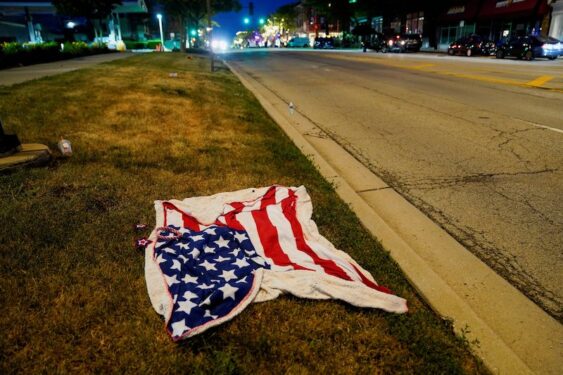
HIGHLAND PARK, Ill. — After a gunman killed at least seven people and injured dozens more during a July Fourth parade in Highland Park, Illinois, Cardinal Blase Cupich of Chicago reiterated the need for elected officials to address gun violence in the U.S.
“Whatever one makes of the right to bear arms, there is plenty of room for prudential judgment in interpreting the Second Amendment so as to enact serious, broadly popular gun-safety measures,” Cardinal Cupich said in a statement. “The senate finally passed a significant, yet modest, gun-safety bill last month, but clearly more must be done.”
My statement on today’s tragic mass shooting in Highland Park: https://t.co/nmVVFrlnOW
— Cardinal Cupich (@CardinalBCupich) July 4, 2022
“The right to bear arms does not eclipse the right to life, or the right of all Americans to go about their lives free of the fear that they might be shredded by bullets at any moment,” he continued. “We must continue to pray that all our officials, elected and unelected alike, will redouble their commitment to keeping safe the people who they have sworn to serve.”
Police arrested 21-year-old Robert E. Crimp III on Monday night as a person of interest in the shooting. Five of the people killed at the parade were adults. Information on the sixth and seventh victims hasn’t yet been released by officials.
Two of the victims identified as of Tuesday morning included 76-year-old grandfather, Nicolas Toledo, and Jacki Sundheim, a member of the North Shore Congregation Israel. Those that were injured ranged in age from 8 to 85.
A gunman opened fire with a high-powered rifle around 10:15 a.m. — well into the latter half of the parade. They allegedly fired the weapon from the roof of a commercial building along the parade route.
Highland Park is a community of about 30,000 people north of Chicago.
“Please join me in praying for the victims and their loved ones, who never imagined a July 4 celebration could become a killing ground,” Cardinal Cupich said. “Pray too for the safety of first responders as they pursue the person responsible for this tragedy.”
Pope Francis weighed in on the shooting in a telegram to Cardinal Cupich. He said he was “deeply saddened” to learn of the “senseless shooting” that took place, and prayed for the victims and the Highland Park community. Pope Francis also offered prayers for an end to violence.
“Pope Francis prays that every member of society will reject violence in all of its forms and respect life in all of its stages,” the telegram said. “As a pledge of strength and peace in the Lord, the Holy Father sends his blessing.”
Cardinal Cupich also lamented a police report that said at least 55 people have been shot and seven killed in Chicago since July 1, noting that “weapons designed to rapidly destroy human bodies have no place in civil society.”
In response to a wave of mass shootings in recent months, Congress passed bipartisan gun legislation near the end of June. The bill’s provisions include enhanced background checks for potential gun buyers under the age of 21, provide millions of dollars for states to implement what are known as “red flag” laws that are designed to keep guns out of the hands of people deemed to be dangerous by the courts, and strengthens laws against straw purchasing and trafficking of guns.
President Joe Biden, though, acknowledged after the Highland Park shooting that “there is much more work to do.”
Illinois governor J.B. Pritzker asked the people of Illinois to pray for all those affected by the shooting. He also spoke about the need for more comprehensive gun legislation.
“Grief will not bring the victims back, and prayers alone will not put a stop to the terror of rampant gun violence in our country,” he said in a statement. “I will stand firm with Illinoisans and Americans: We must — and we will — end this plague of gun violence.”
Assessing ways to stop a culture of violence, Cardinal Cupich invoked a piece of a letter Pope Francis wrote to the people of Chicago in 2016: “As Dr. Martin Luther King Jr. said, humanity ‘must evolve for all human conflict, a method which rejects revenge, aggression, and retaliation. The foundation of such a method is love.’ ”
“I urge all people, especially young men and women, to respond to Dr. King’s prophetic words and know that a culture of nonviolence is not an unattainable dream,” Cardinal Cupich said, “but a path that has produced decisive results.”
